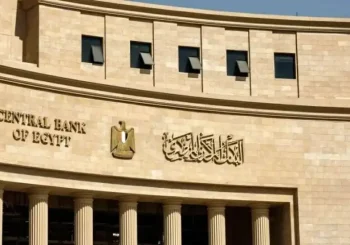Egypt’s retail sector is set to grow by 11 percent over the next four years, according to an October 27 report by the Information and Decision Support Center, a government-affiliated research body.
Since Egypt’s return to the Global Retail Development Index (GRDI) in 2016, following its post-2011 downturn, the country has quickly climbed the ranks, as a combination of government reforms, a young population, and technological adoption, is drawing interest from investors.
From 2016 to 2021, retail sales in Egypt doubled to USD 200 billion (EGP 9.66 trillion) and reached USD 303 billion (EGP 14.64 trillion) by 2023. Retail sector data also indicates a sharp rise in digital transactions from 2021 to 2023, with mobile wallet payments increasing by 325 percent and point-of-sale transactions up by 71 percent.
The report attributes this growth to Egypt’s shifting demographics and the rising adoption of digital technologies among consumers. The swift adoption of electronic payments and digital services, driven by e-commerce platforms like Amazon, Noon, and Jumia, has positioned Egypt as a significant player in the region’s digital economy.
In 2023, Egypt was placed sixth among 30 emerging markets in the GRDI, a measure that ranks countries based on investment potential in the retail sector.
However, the Egyptian retail landscape is not without its challenges.
Economic pressures, including high inflation, have weakened household purchasing power, particularly outside major urban centers. Additionally, relatively low female labor force participation limits household income, which could constrain non-essential retail spending. Egypt’s significant reliance on remittances also exposes consumers to global economic shifts, which can impact domestic retail activity.
Persistent challenges like geopolitical tensions and economic headwinds could also temper growth. The conflict in Gaza, coupled with ongoing inflation, remains a risk factor impacting consumer budgets and investor confidence.
Recent structural reforms are creating an enabling environment for retail investment. For instance, the government’s 2018 mall policy, mandating retail spaces in new real estate projects, has attracted developers aiming to tap into Egypt’s expanding urban population.
The report concludes with projections from Fitch, forecasting growth of at least 11 percent in Egypt’s retail sector over the next four to five years. Household spending is expected to also increase between 2024 and 2028, supported by economic activity and easing inflationary pressures, which would boost consumer purchasing power.
Essentials are anticipated to comprise about one-third of household budgets during this period, with core spending projected to grow faster than discretionary spending, indicating a shift in buying patterns, which all in all forms a fundamentally more favorable environment for retail investors.







Comments (0)